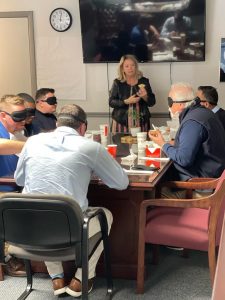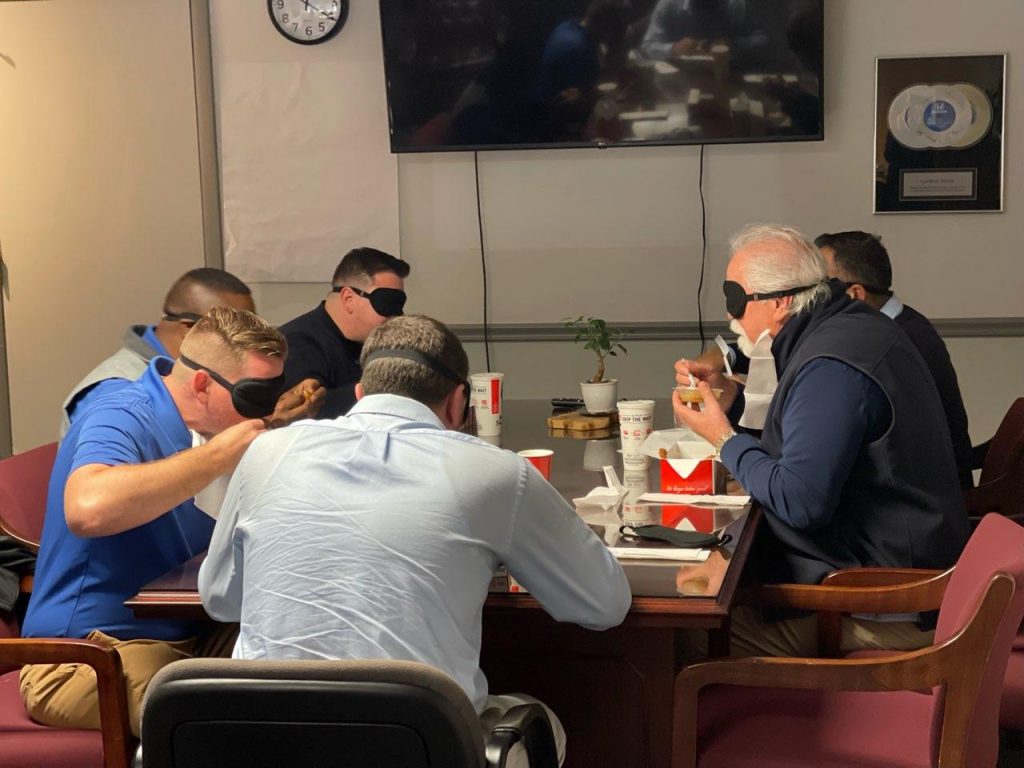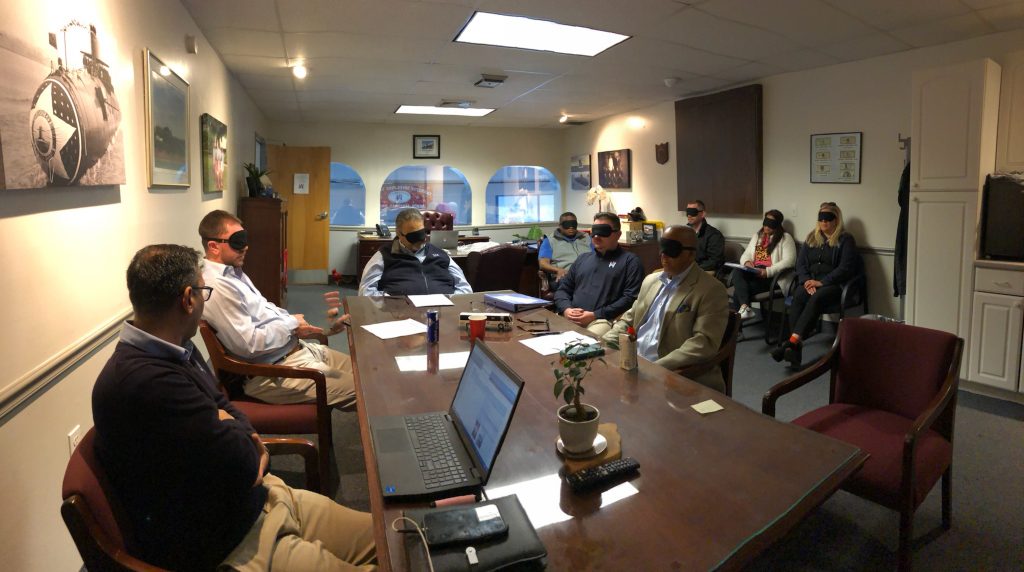Not Your Typical Monday – Connecticut Car Dealership Embraces Hope in Focus Message
As general manager and vice president of Cardinal Honda in Groton, Conn., Kim Cardinal Piscatelli donates time and money to charities. But when she heard about Hope in Focus and the organization’s advocacy for people living with visual impairment, it struck a personal chord.
 Piscatelli was a teenager when she watched her late grandmother slowly lose her vision to glaucoma.
Piscatelli was a teenager when she watched her late grandmother slowly lose her vision to glaucoma.
“It was scary to watch her go through that,” Piscatelli recently recalled. “I loved her very much, and I saw her world get smaller and smaller.”
Piscatelli and her family, including her sister, learned how to help her. They closed their eyes and folded laundry. They learned to present meals as if they were on a clock.
“The chicken is at 12 o’clock, and the coleslaw is at 3 o’clock.”
Hope in Focus’ Dinner in the Dark gala fundraiser, an annual culinary adventure that involves wearing a blindfold while eating food from a secret menu, immediately appealed to Piscatelli. She asked her sister to come with her.
“I was so excited,” she said. “As a child, I remember that the empathy I had for my grandmother would lead us to do things to learn to empathize with her.”
Though the concept brought back memories, it wasn’t exactly muscle memory. The two were eager to go, but a bit apprehensive.
“I remember holding hands under the table and being like, ‘I don’t know what is going to happen, but you are right here, right?’” Piscatelli said.
She loved it. Over the years, she’s brought her children, too. But she also has taken the concept back to Cardinal Honda. It started with a morning meeting four years ago. Employees wore blindfolds
“There’s a lot of conversation about diversity and inclusivity,” Piscatelli said. “It seemed like a good way to participate in that conversation.”
That conversation has grown significantly since then, as companies and individuals look to be more inclusive and empathetic to everyone. So, in 2022, the year Dinner in the Dark returned from a two-year pause due to COVID, Piscatelli resurfaced the exercise.

It was a surprise twist on the typical Monday morning meeting — Piscatelli hadn’t announced her plan. Still, nine of the 10 employees put on blindfolds, while one took photos. When the blindfolds came off, people expressed similar sentiments to those Piscatelli felt during her first Dinner in the Dark.
“They reported they were paying more attention and not worried about what everyone else in the room was doing,” Piscatelli said. “Someone said they felt lonely…because you are not looking around the room making connections or eye contact.”
But even with the uneasiness, people showed interest in trying it again. When Piscatelli asked for six volunteers to put on blindfolds for lunch, the hands shot up.
They tried using tips Piscatelli learned at Dinner in the Dark from Sofia, daughter of Hope in Focus Co-Founder Laura Manfre, and a young woman living with LCA: Bring your food to your face, not your face to your food. Piscatelli announced the clock placement of the meal for the employees, just as she used to do for her grandmother.They huddled up after to discuss.
“Someone said it gave them a whole new perspective,” Piscatelli said. “They didn’t know if they had food on their shirts. They were more aware of what they were eating and how it tasted better, but said it was hard to eat. They lost track of what food was where on the plate.”

Piscatelli hopes the exercise allows her employees to feel more empathy for people with vision loss and think of strategies to make the world more inclusive for them.
“It forced them to think about different sorts of things,” Piscatelli said. “Instead of changing what was on TV, we had to announce what was going to happen next. It helped people be prepared without visual tools.”
In a home with a person with vision loss, people can announce who they are and why they are coming into the room. For example, “It’s me, Kim, and I am here to do laundry.”
In the end, the staff learned something new and embraced leaving their comfort zones.
“It turned their day…it wasn’t a typical Monday,” Piscatelli said. “Everyone was more aware: What else do I not know?”
Piscatelli hopes other businesspeople feel inspired to learn what they don’t know about vision loss.
“It’s one thing to talk about equity, diversity, and inclusivity.” Piscatelli said. “It’s another thing to immerse everyone in an exercise where they feel empathy for people who have low vision and compassion for other people as they are temporarily trying that on.
